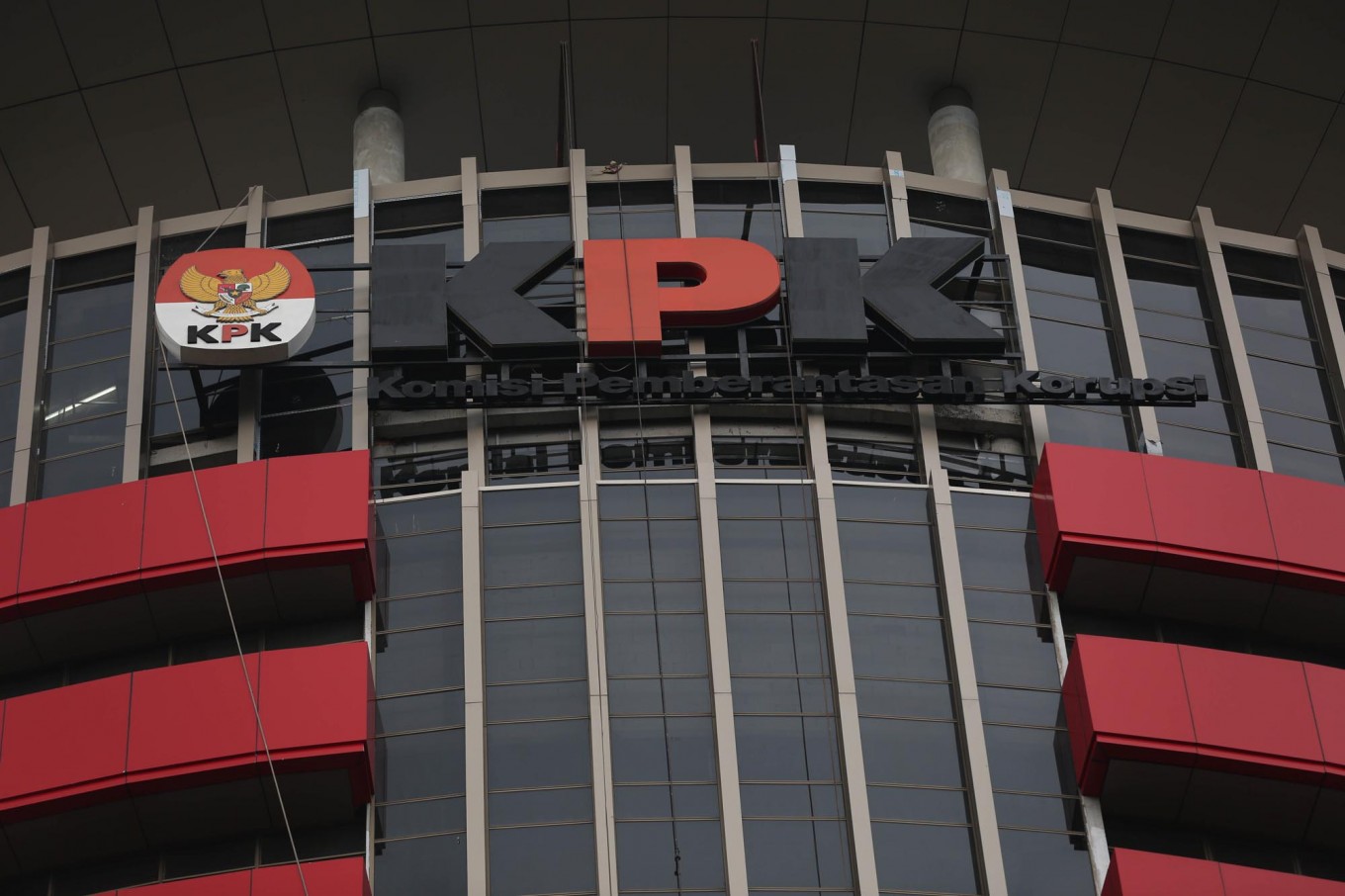Popular Reads
Top Results
Can't find what you're looking for?
View all search resultsPopular Reads
Top Results
Can't find what you're looking for?
View all search resultsEDITORIAL: KPK's lonely battle
The antigraft body is confronting the coalescing of interests seeking its demise.
Change text size
Gift Premium Articles
to Anyone
I
n any other institution, the action of Brig. Gen. Aris Budiman, director of investigation at the Corruption Eradication Commission (KPK), would merit a severe punishment. Against the wishes of the KPK leadership, Aris, who is seconded by the National Police to the antigraft body, turned up for a hearing held by the House of Representatives to inquire into the antigraft body’s performance.
Aris told lawmakers his job at the KPK had been undermined by a rival faction. Aris did not mention any names, but it was clear he was lashing out against top investigator Novel Baswedan, who opposed his plan to bring in more police officers as KPK investigators. Police officers account for more than 50 percent of KPK investigators, and it is easy to see why KPK commissioners have not yet taken action against Aris.
This could be the biggest crisis the KPK has ever faced. Beyond the serious damage to its image, which for the first time was exposed to the public as a fractious institution, the antigraft body is confronting the coalescing of interests seeking its demise.
In the past, we witnessed many attempts by the National Police to weaken the KPK, especially after the antigraft body acted against police generals on suspicion of graft. In 2012, the police launched an assault on the KPK, including by besieging its headquarters, after former National Police Traffic Corps chief Insp. Gen. Djoko Susilo was named a graft suspect. The attack also included an attempt to bring criminal charges against Novel.
Lawmakers have long plotted the KPK’s downfall. Over the years, they have sought every path to amend the 2002 Corruption Law. Earlier this year, they found a fresh urgency to revise the law and familiarized the public with its draft proposal for the amendment plan. The current House inquiry is their biggest political move against the KPK to date and was launched after the commission kicked off an investigation into the e-ID case that implicates a number of top politicians.
For the first time, these two disparate institutions joined forces to meet their common goal of weakening the KPK. The House will use politics to meet the ultimate goal of disbanding the KPK. A member of the House inquiry team toldTempo that if House politicians failed to achieve the first goal, they would take the second option of amending the law or at the very least remove Novel and his band of supporters from the KPK.
This week, the police lent a hand in achieving that last objective. The Jakarta Police are processing a defamation case filed by Aris against Novel. Now they are handling a second defamation case against Novel.
Again, the KPK has been left to its own devices in dealing with the onslaught. If Jokowi fails to show his commitment to protecting the KPK, this will be the umpteenth time this year we will call for the relaunch of the 2009 cicak lawan buaya (gecko versus crocodile) campaign, during which the public took to the streets in defense of the KPK.










